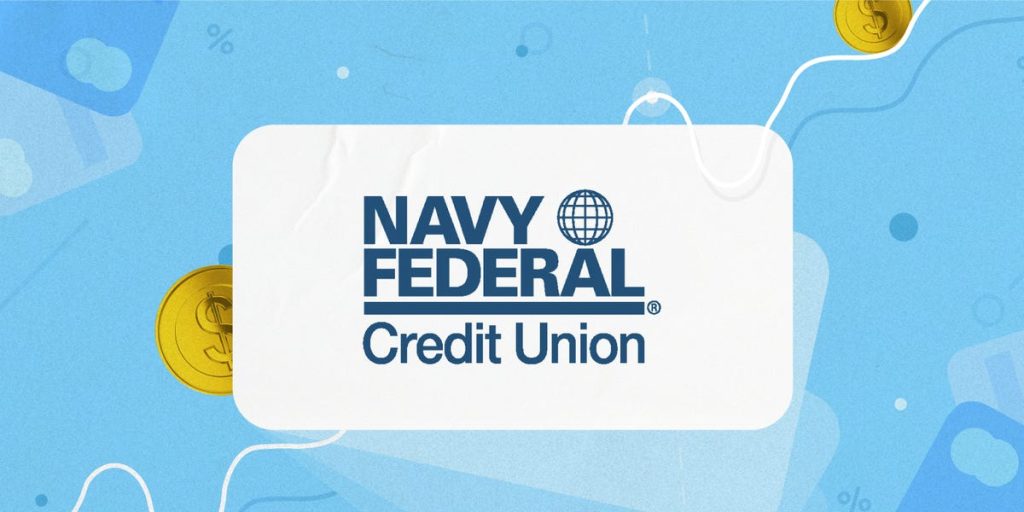Navy Federal Credit Union Student Loans: A Comprehensive Overview
Navy Federal Credit Union (NFCU) is one of the largest credit unions in the United States, offering a wide range of financial products, including student loans. While NFCU is well-known for its competitive rates and member-focused services, its student loan offerings are fairly standard compared to other private lenders. Below, we’ll explore the key features, benefits, and drawbacks of NFCU student loans, helping you determine if they’re the right choice for your financial needs.
Navy Federal Student Loans: Key Features and Benefits
Navy Federal Credit Union student loans are designed to cater to both undergraduate and graduate students, as well as those looking to refinance existing loans. Here are the standout features of NFCU student loans:
- Interest Rates: NFCU offers both fixed-rate and variable-rate loans. Fixed rates range from 4.75% to 14.30% APR (with an AutoPay discount), while variable rates range from 7.24% to 16.60% APR. While these rates are competitive, it’s worth noting that other lenders may offer lower minimum rates.
- Repayment Flexibility: Borrowers can choose between a 5-year or 10-year repayment term. Additionally, NFCU offers two in-school repayment options: a low flat payment of $25 per month or interest-only payments. However, borrowers must begin repayment while still in school, which may not be ideal for everyone.
- No Origination Fees or Prepayment Penalties: Unlike many other lenders, NFCU does not charge origination fees or penalties for paying off your loan early. However, late payments may incur a $20 fee.
- Automatic Payment Discount: Borrowers who set up automatic payments from a checking or savings account receive a 0.25% rate discount.
- Small Loan Minimum: NFCU allows borrowers to take out as little as $2,000, making it a good option for those who need smaller loan amounts.
- 24/7 Customer Support: NFCU is known for its excellent customer service, available by phone, in person, via secure messaging, or mail.
Pros and Cons of Navy Federal Student Loans
Advantages
- Low Minimum Loan Amount: Borrow as little as $2,000, which is lower than many other lenders.
- No Origination Fees or Prepayment Penalties: This can save you money over the life of the loan.
- Automatic Payment Discount: A 0.25% discount for setting up AutoPay.
- 24/7 Customer Support: Accessible and reliable support whenever you need it.
- Refinancing Options: NFCU allows you to refinance both federal and private loans, potentially securing better rates.
Disadvantages
- Higher Minimum APR: NFCU’s minimum interest rates are higher than some competitors.
- Limited Repayment Terms: Only 5-year and 10-year repayment options are available for new loans.
- Immediate Repayment Requirement: Borrowers must begin repayment while still in school, which can be challenging for some students.
- Membership Required: You must be a member of NFCU to qualify for a loan. Membership is limited to military personnel, veterans, and their families, among others.
- Late Fees: A $20 late fee applies if payments are missed.
How to Apply for Navy Federal Student Loans
The application process for NFCU student loans is straightforward but requires some documentation and time. Here’s a step-by-step guide:
- Check Eligibility: You must be a member of NFCU. If you’re not already a member, you can apply for membership during the loan application process. You’ll also need to be a U.S. citizen or permanent resident and a legal adult in your state.
- Gather Documentation: You’ll need to provide personal information (e.g., Social Security number, date of birth, and address), as well as details about your school enrollment, expected graduation date, and loan amount.
- Complete the Online Application: The application is available on the NFCU website and requires basic personal and financial information.
- Add a Cosigner (If Needed): While not required, adding a cosigner can improve your chances of approval and lower your interest rate.
- Submit Final Documentation: Once your application is reviewed, you may need to provide additional documentation, such as proof of income or enrollment status.
- Sign and Certify the Loan Agreement: Once approved, sign your loan agreement, and NFCU will disburse the funds directly to your school.
Navy Federal Student Loans vs. Other Lenders
When comparing NFCU student loans to other lenders, it’s important to consider your individual needs and financial situation.
- Navy Federal vs. Ascent Student Loans: Ascent offers more repayment term options (up to 15 years) and a 1% cash-back reward upon graduation, which NFCU does not. However, Ascent charges no late fees, whereas NFCU charges a $20 late fee.
- Navy Federal vs. Sallie Mae: Sallie Mae offers more repayment term lengths (5, 10, and 15 years) and additional perks, such as free access to Chegg study services. However, Sallie Mae’s late fees are higher (5% of the unpaid amount, capped at $25).
Ultimately, the best lender for you will depend on your priorities, such as interest rates, repayment flexibility, and additional benefits.
Customer Experience and Trustworthiness
Navy Federal Credit Union is a well-established financial institution with a strong reputation for customer service. Borrowers report positive experiences with NFCU’s 24/7 support and user-friendly mobile app. However, like any lender, NFCU is not without controversy.
In recent years, NFCU has faced accusations of racial bias in its mortgage lending practices, though the case is ongoing, and the credit union has not admitted wrongdoing. Additionally, in late 2024, the Consumer Financial Protection Bureau (CFPB) required NFCU to pay over $80 million to customers due to illegal overdraft fees. NFCU has stated its commitment to compliance and customer satisfaction.
Despite these issues, NFCU remains a trusted option for many borrowers, particularly those who value personalized service and are already members of the credit union.
Conclusion: Are Navy Federal Student Loans Right for You?
Navy Federal Credit Union student loans are a solid choice for borrowers who value excellent customer service, flexible repayment options, and no origination or prepayment fees. The ability to borrow smaller amounts ($2,000 minimum) and the availability of refinancing options are additional perks. However, NFCU may not be the best fit for everyone, particularly those seeking lower interest rates or more repayment term lengths.
If you’re already a member of NFCU or qualify for membership and prioritize accessible customer support, NFCU student loans are worth considering. Otherwise, it’s wise to compare rates and terms from other lenders to ensure you’re getting the best deal for your financial situation.












